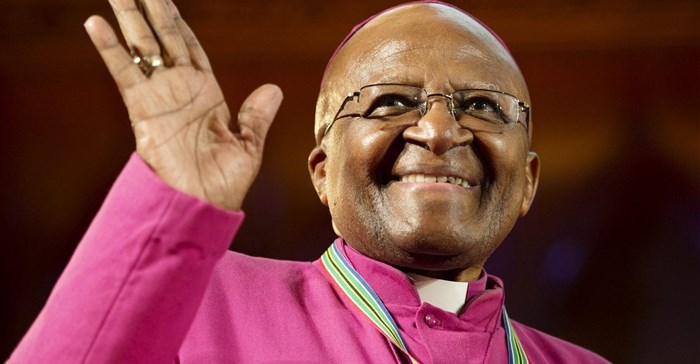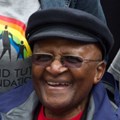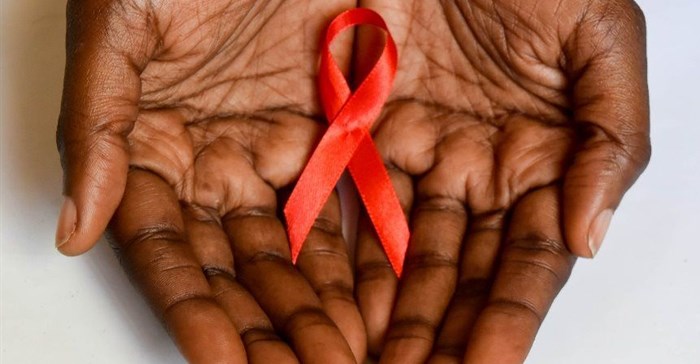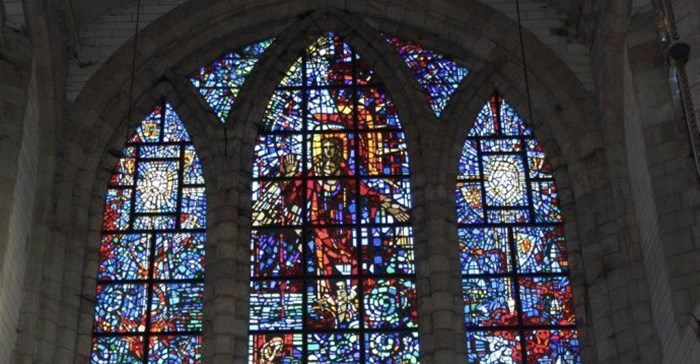As tributes of the late Archbishop Emeritus Desmond Tutu continue to pour in, let's not forget his legacy as a pioneer in healthcare and as an HIV/Aids activist.
We owe it to his life's work and memory to keep up the momentum he built up in the fight to end the Aids pandemic by 2030 - a pandemic which has seen 78 million people worldwide become infected with HIV and 35 million die from Aids-related illnesses. This, since the first cases of HIV were reported more than 35 years ago.
A patron of the Desmond Tutu HIV Centre and Health Foundation, Archbishop Desmond Tutu, in the early part of the rollout of HIV treatment, was "a strong protagonist for equitable access to care, vigorously denounced the AIDS denialism rife at the time and called the stigmatisation and exclusion of people living with HIV a “new apartheid”.
This is according to Ms. Zohra Ebrahim, the Desmond Tutu Health Foundation Board Chair.
The Desmond Tutu Health Foundation (DTHF) is a registered non-profit company established in association with the Desmond Tutu HIV Centre, an accredited research centre within the Faculty of Health Sciences, University of Cape Town (UCT).
Seeding HIV research
From small beginnings in the 1990s as the HIV Research Unit at Somerset Hospital under the directorship of Professor Robin Wood, the DTHF was subsequently established at its present headquarters at UCT in 2004. The HIV Research Unit was the first public clinic in South Africa to offer antiretroviral therapy to those living with HIV.
Bridging rigorous academic research with community development programmes, the DTHF collaborates with those most at risk to find innovative solutions in the prevention and treatment of HIV and related infections.
"The Arch, as he was affectionately known to us, always wanted to hear the newest innovation and progress in the field of HIV, TB and related conditions. He celebrated the scientific wins and the losses with great interest and understanding. He always encouraged us in all our endeavours and never failed to acknowledge breakthroughs, achievements or other events through a message, a kind word or flowers.
"He and Mama Leah attended many of our community activities, participating enthusiastically and was always willing to share his wisdom laced with infectious good humour. He empathised with those living with HIV and TB and showed the deepest compassion for those most in need, attending site clinics, mobiles and other community events, his charisma and love always strongly shining through," Ebrahim said.
'The national healing process'
Scaling up testing and diagnostics for HIV and Aids, and getting those testing positive for HIV vaccinated against Covid-19 are the ways we can keep Desmond Tutu's legacy going. In a statement released by UNAIDS, which is leading the global effort to end Aids as a public health threat by 2030, people living with HIV appear to be at an increased risk of more severe outcomes from Covid-19 compared with other people. It's imperative, they say, that people living with HIV should be vaccinated against Covid-19, regardless of their CD4 or viral load, because the potential benefits outweigh the potential risks.
Leading the conversation in this regard was our very own, Archbishop Tutu who, in May this year was the first citizen in the Western Cape to get vaccinated for Covid-19. At the launch of Phase 2 of the Western Cape Government's vaccine rollout programme where he received his jab Desmond Tutu said: “All my life I have tried to do the right thing and, today, getting vaccinated against Covid-19 is definitely the right thing to do. That’s why Leah and I took this step, to do our part to start the national healing process so we can end this pandemic. We have to do this together!”
HIV infections rampant
While the global Aids response has effected significant reductions in the prevalence of HIV infections and deaths, HIV infection continues to be an epidemic that has not been brought under control. In 2019, about 200 000 people in South Africa were newly infected with HIV, adding to one of the highest HIV prevalence rates in the world.
Due to fewer people going to get tested due to fears of contracting the Covid-19 virus in clinic settings, this number could be even higher as we launch into 2022. According to medical and scientific affairs lead at Roche Diagnostics, Ida Mbuthia, 7.1 million people are currently living with HIV and don't know it. She was speaking at a media briefing on World Aids Day this month. She was joined by Jennifer Lotito, president and chief operating officer at RED - a brand that generates critical and sustainable funds to help end the AIDS pandemic.
"With Covid-19 cases spiking again in many African countries, we need to invest in public and private partnerships in driving access to sustainable and reliable quality testing for HIV and Aids as a matter of urgency," Lotito said.
"The value of early diagnostics in fighting pandemics like HIV/Aids cannot be underestimated, because the fight against Covid-19 is also the fight against HIV/Aids."
The future is in our hands
Collaborating with communities at high risk of infection, the Desmond Tutu Health Foundation (DTHF) has worked tirelessly to fulfill its mission to lessen the impact of the HIV epidemic on individuals, families and communities in South Africa, and will continue to do so going forward.
In the wake of Archbishop Tutu's passing, it falls on each of us to see this mission through.
South Africa has the biggest HIV epidemic in the world, with 7.7 million people living with HIV. HIV prevalence among the general population is high at 20.4%. A latest report from the Joint United Nations Program on HIV/AIDS (UNAIDS) has warned that the ongoing Covid-19 pandemic could drive these numbers up. The report titled "Prevailing against pandemics by putting people at the center" predicted this trend could see up to 148,000 additional Aids-related deaths and up to 293,000 additional new HIV infections by 2022.
Says Lotito: “We’ve seen such incredible progress in the fight against HIV over the last 30 years, but with progress comes complacency. We can’t forget the progress we’ve made on HIV and diagnostics, because until all of us are safe, we’re all in danger."
Winde speaks out
Addressing the media on the latest Covid-19 statistics yesterday, Western Cape Premier, Alan Winde urged the public to continue to put measures in place to keep reduce the number of positive Covid-19 cases in the Western Cape. He promoted measures such as wearing masks, social distancing and getting vaccinated. As we go into our New year celebrations please keep it outside, keep it small, and don't turn it into a super-spreader event.
"Let's make the new year the year that enables us to get back those jobs we've lost and lead healthy lives into the future. He said the Western Cape Government is in negotiation with the President to remove the Disaster Declaration, which was initially put in place to initiate lockdowns and protect hospitals from an oversupply of patients.
Already contact tracing has been stopped. "The citizens need to look to take that responsibility [of stopping the spread of the virus] on themselves," Winde said.
To this end, he praised Archbishop Tutu for the role he's played in bringing equitable healthcare to all South Africans and for his promotion of Covid-19 vaccines. "Right up until the end, you've been there for us, from being an anti-apartheid activist to continuing to drive HIV/Aids programmes.
"We thank you for all you've done, for being our moral compass," Winde said. "We mourn with Mama Leah and the family. We send our deepest condolences."
Funeral arrangements
The late Anglican Archbishop Desmond Tutu has been honoured by President Cyril Ramaphosa with a category one special funeral set to take place on Saturday – New Year's Day at St George's Cathedral. It is here where his ashes will be interred.
On Friday, Archbishop Tutu will lie in state at the cathedral.
Desmond Tutu led numerous campaigns and marches against apartheid from St George's steps, which became known as the ''People's Cathedral'' and a symbol of democracy.
Road closures have already been arranged in Cape Town's CBD, in the lead up to the interfaith memorial service. The service starts at 10am and will be televised across all platforms.
"The service is being kept small because of Covid-19," Premier Winde said.
Covid-19 restrictions mean that only 100 people can attend the funeral of South African anti-apartheid hero Archbishop Desmond Tutu.
The funeral plans were announced by the Archbishop of Cape Town, Thabo Makgoba who will lead the service at the city’s St. George’s cathedral on New Year’s Day.
The bells of St George's Cathedral will toll for 10 minutes each day at noon until Friday in his honour.
As part of the funeral designation, the national flag has been half-masted throughout the country and at South African diplomatic missions worldwide and will remain that way until Saturday evening.











































